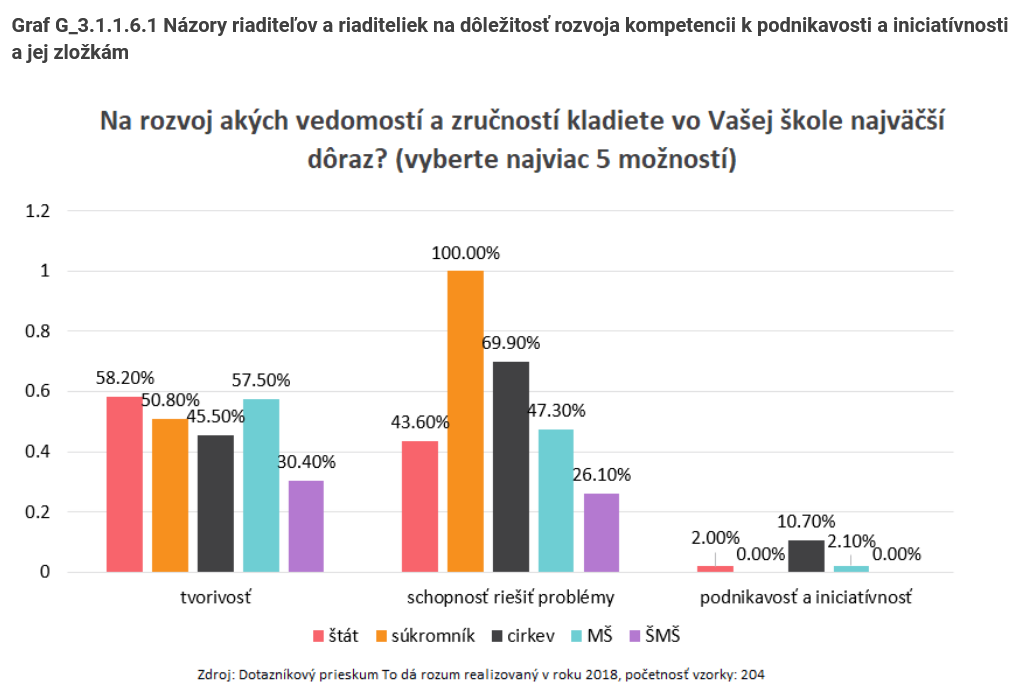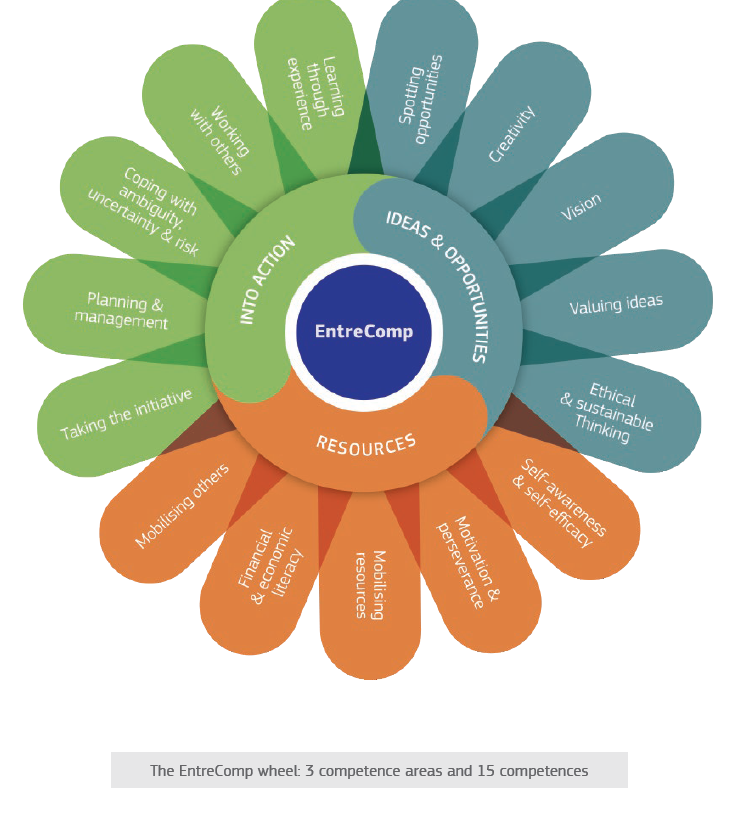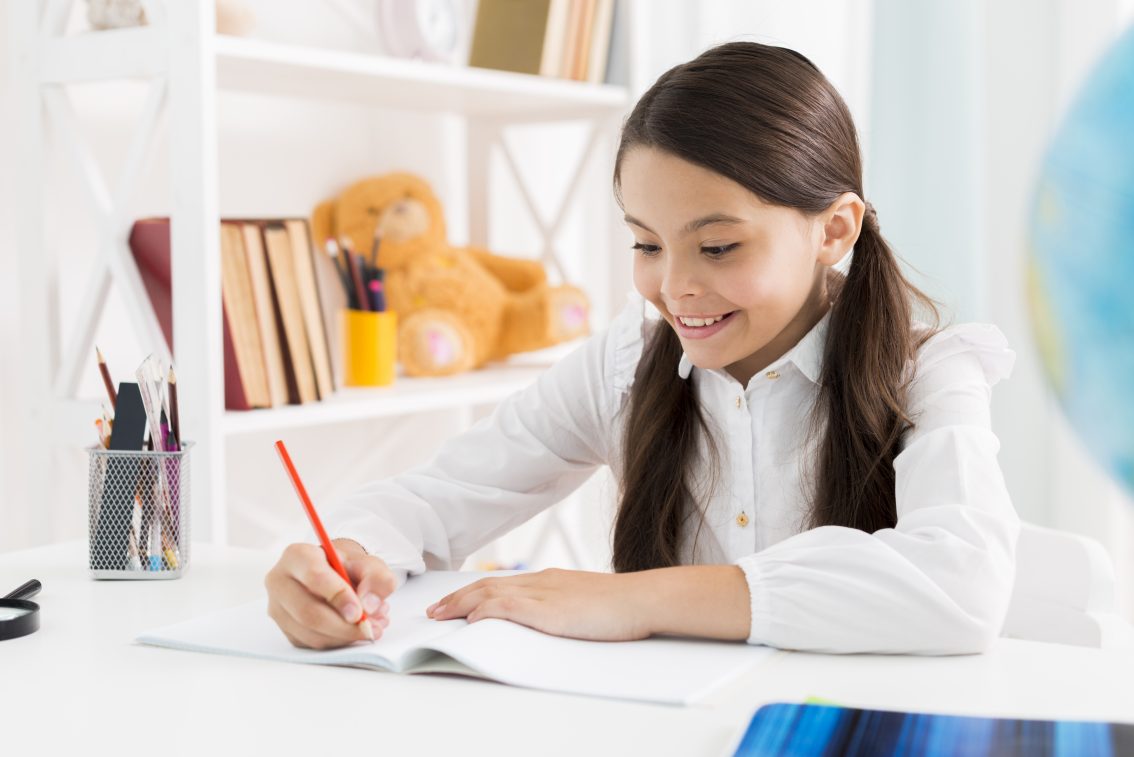Open Future and entrepreneurship
Open Future is a programme for a selected group of children. It aims to equip them with skills and help them advance on their educational path. It inspires them and helps them become leaders of change in their communities. In other words, Open Future emphasizes the fact that children have something to offer to their communities and environment, that they can bring positive changes. At an individual level, the programme also aims to direct children’s attention to public affairs, inclusion and to support their empathy.
“Entrepreneurship and initiative encourage a committed approach to life. At school, these skills influence the involvement of pupils in extracurricular activities and the willingness to take the initiative in problem-solving. Creativity enables a person to find solutions in usual and less usual situations. According to the principals of kindergartens and primary schools, as well as secondary school students, entrepreneurship and initiative are not among the priorities in teaching,” as it is written in the analysis of the project entitled To dá rozum (tr. That Makes Sense), which focuses on the change of education in Slovakia.
On the one hand, schools do not develop entrepreneurial skills in children. On the other hand, these skills are most required in society. “According to the results of the analysis of interviews with employers, it is creativity, initiative and the ability to solve problems that they expect from their employees. Engaged approach, entrepreneurial skills and creativity are among important personal features that predetermine active civic engagement,” the analysis shows.

How do we at the Open Future encourage entrepreneurship?
When developing entrepreneurship through our programme, we assume that it is one of the essential skills that children can apply in their future and whatever they do. It will help them recognise challenges and create opportunities. Thanks to entrepreneurial skills, they can come up with their own projects, implement them in real life and take ownership of them. Therefore, social innovation has become the mainstay of the Open Future curriculum. The creation of own social innovation is a goal that each of the participants should achieve throughout the programme. While working on the creation of innovation, one develops his/her entrepreneurial skills and, at the same time, also digital and soft skills (which belong among educational priorities of the programme, too).
We based our entrepreneurship curriculum on the European Competence Framework for Entrepreneurship, also known as EntreComp, and divided the priority competencies into three years of the programme.

Self-awareness/self-efficacy
In the first year, we focus on creating an environment for the children to get to know each other better, to get to know their strengths, personal motivations, areas for improvement, etc. We also focus on anything the children are interested in, as it provides the basis for what they will work on later.
Identification and problem-solving
Subsequently, we focus on individual partial topics within entrepreneurship and entrepreneurial thinking, such as the ability to be perceptive towards the environment, observe it, recognise and name problems and shortcomings, as well as the things that could be done better. Of course, curiosity, interest in the environment, and an initiative approach to proposing ideas and solutions are very important.
Ethical and sustainable thinking
In the first year, we discuss with our participants key societal issues through the looking glass of The Sustainable Development Goals (UN), in which all three dimensions of sustainable development are interconnected, namely the economic, social and environmental spheres.
Communication skills/creativity
Cross-cutting competencies are communication skills and creativity. We enhance these skills in the first step as part of our soft skill education. They are followed by entrepreneurial skills related to communication with the end “customer”, simple marketing, innovation, design and the like.
Mobilising and using resources / “Into action”
In the second year, we focus on delivering a more comprehensive procedure and process in which we build on the selected problem. We try to accompany children through the process of creating their projects, i. e. we are looking for possible solutions to the problem that children have identified. We then test and verify the solutions. We try to make the children understand that they need to know their users or customers and adjust their solutions accordingly. The aim is to design solutions that are useful, valuable and of interest. We guide the children to the stage when they test the implementation of a solution by mobilising resources and bringing the solution to life. We also involve experts on different topics as consultants, who pass on their know-how to the participants.
The first year of the programme focuses on the starting points in entrepreneurship. In the second year, we concentrate on the use of entrepreneurship in the creation of children’s own projects, their social innovation, which they focus on in the third year. In the last year, they deepen their knowledge in specific fields through fun and challenging tasks prepared for them.


